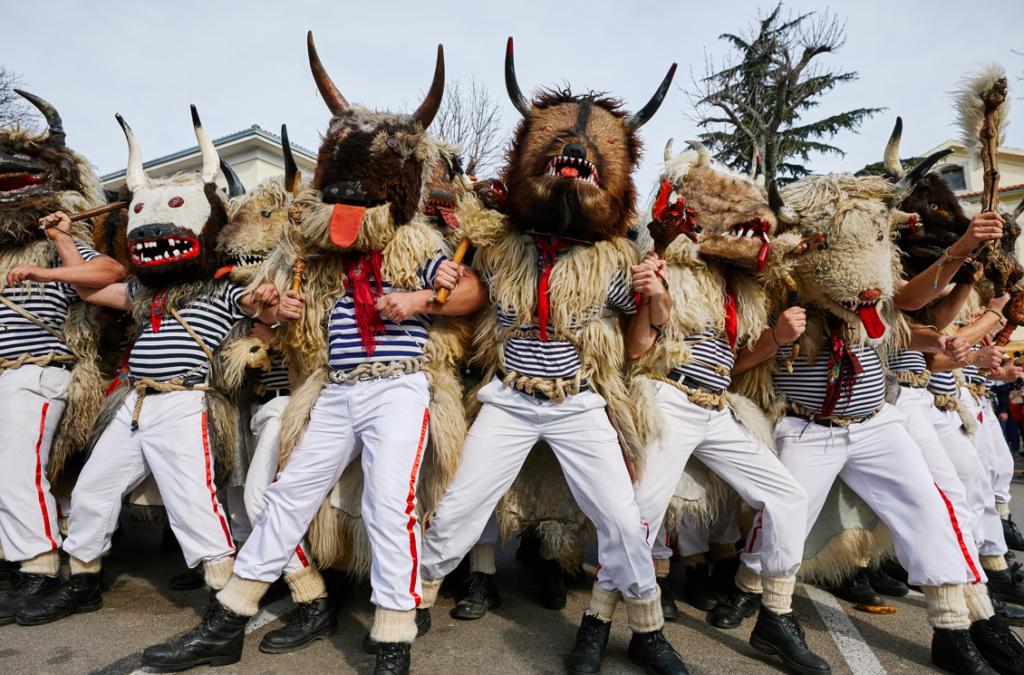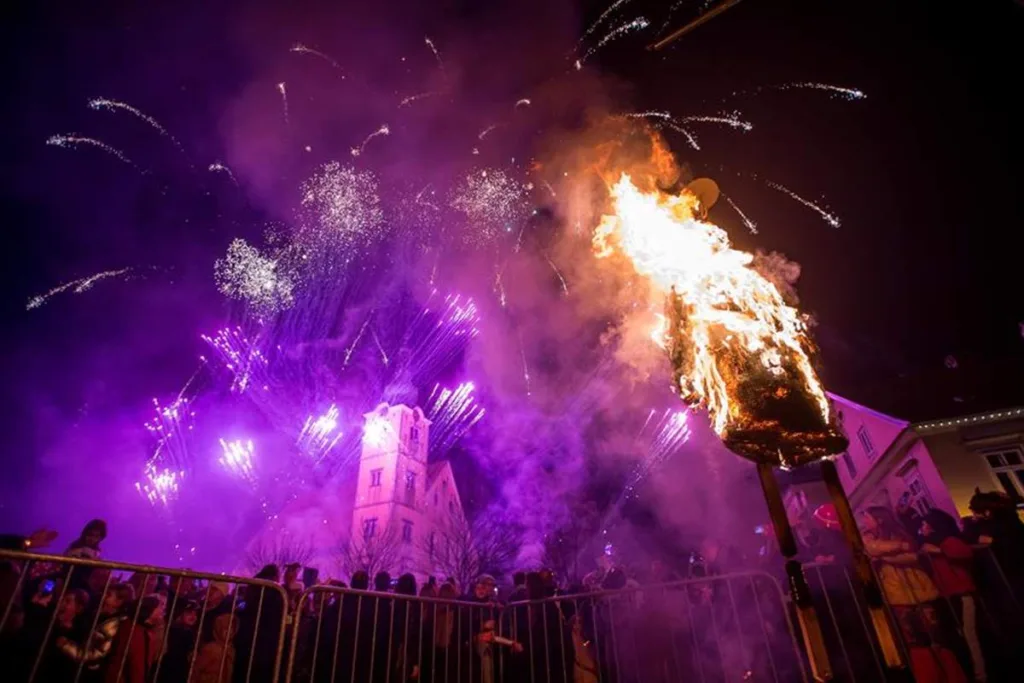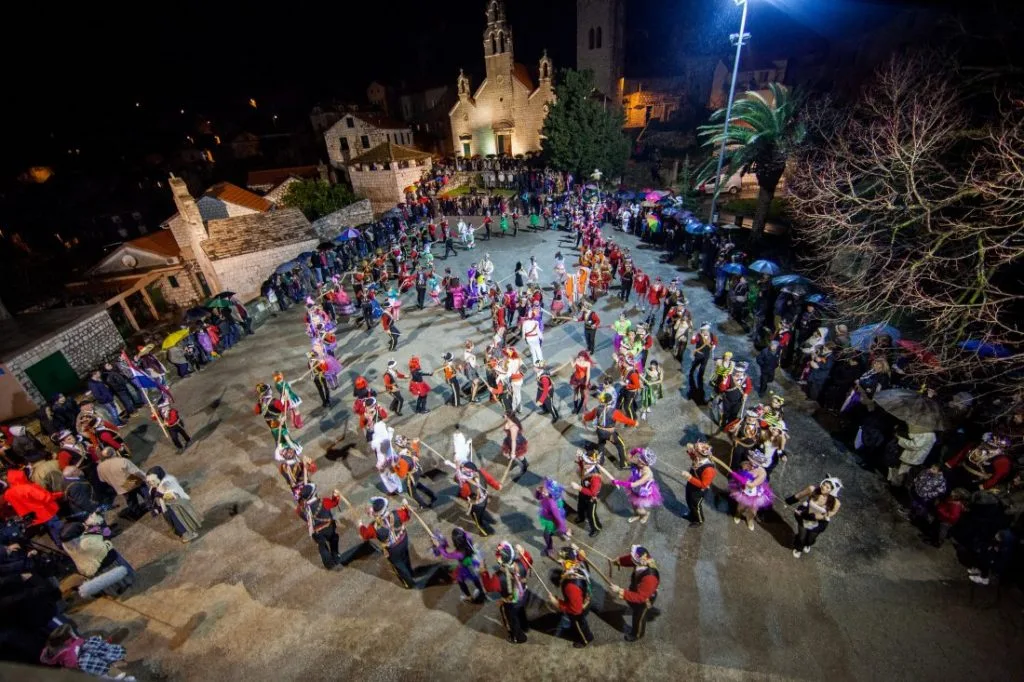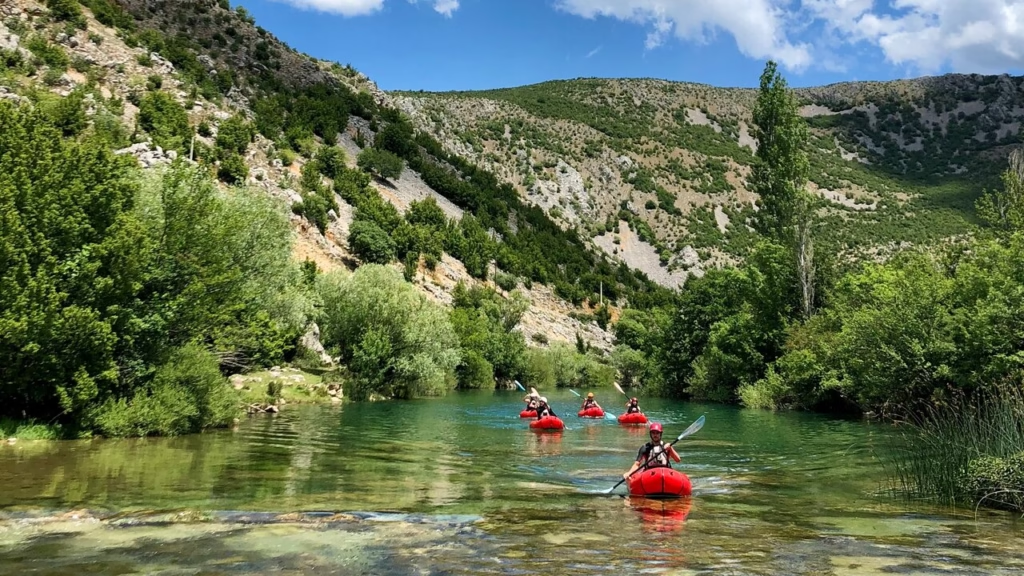Croatia’s carnival season, locally known as “fašnik” or “poklade,” is a vibrant time of the year when towns and cities across the country come alive with color, music, and laughter. Unique traditions such as the burning of the “Poklad” puppet on Lastovo or the elaborate masked dances in Dubrovnik’s historic palaces set Croatia’s carnivals apart from others around the world. Rooted in rich traditions, these pre-Lenten festivities offer a unique glimpse into Croatia’s cultural heritage. While the Rijeka Carnival is the most internationally renowned, numerous other towns host equally enchanting celebrations. Here’s an overview of the key carnivals in Croatia for 2025.

1. Rijeka Carnival
Often compared to the grand carnivals of Venice and Rio de Janeiro, the Rijeka Carnival stands as one of Europe’s most significant. The 42nd edition in 2025 will run from January 17th to March 5th, featuring an array of events:
January 24th: The Carnival Queen Pageant and the Handover of the Key to the City mark the official start of the season.
February 15th: The Children’s Carnival Parade showcases the creativity of over 6,000 young participants from 67 groups.
March 2nd: The International Carnival Parade, the highlight of the celebration, brings together 9,000 participants from nearly 100 groups, including international ensembles.
Beyond these headline events, Rijeka also offers masquerade balls, concerts, gastronomic workshops, and sporting activities, ensuring a diverse program for visitors. Be sure to book your accommodations early, as the city sees an influx of travelers during this period. Consider using platforms like Booking.com or Agoda.com for a range of options, and prioritize locations near the city center to stay close to the festivities.

2. Samobor Carnival (Samoborski Fašnik)
Dating back to 1827, the Samobor Carnival is one of Croatia’s oldest and most beloved. Located just west of Zagreb, Samobor transforms into a hub of festivity with:
Vibrant masked parades
Traditional music and performances
Family-friendly activities
The carnival culminates on Shrove Tuesday, March 4th, making it a perfect day trip for those staying in Zagreb.

4. Lastovo Carnival (Poklad)
On the island of Lastovo, carnival traditions take on a unique twist with the “Poklad” puppet ceremony. This event includes:
Parading the Poklad puppet through the town
Burning the puppet as a symbolic act of banishing evil spirits
This deeply rooted folklore celebration climaxes on Shrove Tuesday, March 4th, offering an authentic and intimate experience for visitors.

3. Dubrovnik Carnival
Dubrovnik, the Pearl of the Adriatic, hosts a carnival that seamlessly blends its historic charm with lively festivities, including the traditional masked dances held in the old city’s palaces and vibrant street performances inspired by medieval customs. Visitors can expect:
Elegant masked balls
Street performances
Special programs for children
Although dates for 2025 are yet to be confirmed, the Dubrovnik Carnival typically concludes on Shrove Tuesday, March 4th.
5. Split Carnival
Split, Croatia’s second-largest city, hosts a lively carnival that includes:
Colorful costume parades
Live concerts and street parties
Activities for all age groups
The main festivities take place in the week leading up to Shrove Tuesday, March 4th, drawing both locals and tourists to the Dalmatian coast.
6. Zadar Carnival
Zadar’s carnival celebrations feature:
Children’s parades
Masquerade balls
Various cultural events
As with other carnivals, Zadar’s festivities conclude on Shrove Tuesday, March 4th, making it another must-visit destination for carnival enthusiasts.
Table of Contents
ToggleCheck offers from our partners
Plan Your Visit
Croatia’s carnivals are more than mere festivities; they offer a unique lens into local traditions and provide unforgettable opportunities to experience the country’s diverse cultural tapestry. Whether you choose the grandeur of Rijeka, the historical charm of Dubrovnik, or the unique traditions of Lastovo, each carnival offers something special. To ensure a smooth trip:
Book accommodations well in advance.
Pack warm clothing, as the carnival season spans the winter months.
Check local tourism websites for detailed schedules and updates.
Embrace the magic of Croatia’s carnival season in 2025 and create unforgettable memories filled with joy, laughter, and cultural discovery.
Disclosure: This page may contain affiliate links. This means that we get a small commission from any purchase you make, at no additional cost to you!

